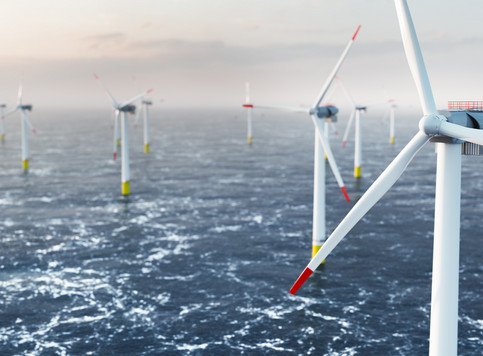Competition law to your morning coffee – April 2023
In this newsletter, the competition law team at DLA Piper Norway provide insight to the latest and most relevant decisions form the EU, national courts, and competition authorities. The newsletter aims to provide a brief and easy-to-understand summary of current decisions and trends from the world of competition law, preferably as light reading material suited for your morning coffee.

Posten Norge's lawsuit and claim for compensation against participants in the well-known EU truck cartel ended in an acquittal. In the judgment of 28 February 2023, the Oslo District Court (Nw. Oslo Tingrett) stated that the price cartel and violation of TFEU Article 101 and Article 53 of the EEA Agreement constituted a basis for liability under Norwegian law of damages. However, the court did not find it sufficiently proven that the price fixing had in fact caused Posten Norway a financial loss. Decisive for the court was the lack of reliable empirical econometric analyses to substantiate the evidence advocating that the unlawful collaboration had resulted in an overcharge for the plaintiff. Nor was there any basis for reverse burden of proof, as Posten Norge argued. Tine and its subsidiary Diplom-Is have followed Posten's footsteps and issued a similar lawsuit against the participants of the EU truck cartel. This case, however, has been upholstered until further notice, pending the European Court of Justice's judgment of the cartel case against Scania.
Since 2019, the European Commission has assessed whether Apple's condition that app developers must use the company's own payment system in the App Store violates the prohibition against abuse of a dominant position, and they sent an updated "Statement of objections" (SO) at the end of February this year. Compared to its original SO from 2021, the Commission has adjusted its focus. The Commission now refers to the controversial behavior as unfair trading conditions towards consumers rather than risk of foreclosure due to increased costs for competitors. The case started in 2019 after music streaming service Spotify complained Apple's App Store terms to the Commission and has been going on in parallel with the Dutch authorities' investigation into Apple's use of similar terms against developers of Dutch dating apps in the App Store. The updated SO is probably a result of Dutch authorities dismissing the case in August 2021 on the condition that Apple accepts alternative payment solutions for dating app developers from the Netherlands.
The Commission has recently initiated a long-awaited update of the guidelines for the application of the prohibition provision against abuse of dominant position (TFEU Article 102, corresponding to Section 11 of the Norwegian Competition Act). The Commission's Policy Brief, which summarizes the most important proposed changes, states, inter alia, that they will implement an effects-based enforcement of the provision and create room for objectives other than consumer welfare. The Commission also clarifies that it is not obliged to rely on the AEC (as-efficient competitor) test in certain cases, notably in rebate cases, and that actual foreclosure or marginalization of competitors is relevant when assessing anti-competitive behavior, but not a prerequisite. It is expected that the Commission will publish their revised draft guidelines in 2024.

Elon Musk's billion-dollar acquisition of Twitter in 2022 made headlines around the world, but competition authorities in Turkey were apparently less enthusiastic. The social networking company did not report the acquisition to Turkish competition authorities, even though the transaction according to the authorities was subject to mandatory merger filing in the country. Twitter was therefore fined 0.1% of the company's gross revenue in Turkey on 6 March this year. The authorities have given the company 60 days to counter the grounds for the sanction imposed.
Besides their performances in Formula 1, the Austrian energy drink manufacturer Red Bull has been in in trouble over the past year. In March this year, the company received an unannounced visit from the European Commission in Austria and several EU countries on suspicion of abuse of a dominant position and participation in illegal cartel activities, after allegedly being subject to a complaint from its competitor Monster Energy. Red Bull also received a fine in December from the Turkish competition authorities for participating in cartel activities with other suppliers to determine the shelf prices of grocery stores by facilitating coordination between the five major grocery chains for a "hub-and-spoke" price increase. However, the beverage supplier is not alone in being on the European Commission's radar. Among others, Coca Cola and PepsiCo are currently under investigation by the US Federal Trade Commission for suspected illegal price discrimination.
The European Court of Justice has now ruled that the prohibition on abuse of dominant position can be applied to transactions that have not been subject to control by national competition authorities. The issue was assessed in the Towercast case (C-449/21), where Towercast argued that TDF's acquisition of Itas was an abuse of a dominant position because it led to a significant strengthening of the competitor's already dominant position (3 to 2). Equal to Advocate General Kokott's opinion, the European Court of Justice stated that the EU Merger Regulation does not prevent national competition authorities from pursuing complaints of violations of the prohibition on abuse of a dominant position, even if the transaction itself is below the filing thresholds and thus exempt from merger control. However, the European Court of Justice pointed out that this does not apply where the transaction has already been cleared by national authorities, and accordingly has been assessed from a competition law perspective.
In line with an increased focus on sustainability both within competition law and state aid, the EU Commission has now adopted a temporary crisis and transition framework (TCTF) to promote support measures in sectors that are central to the transition to a net-zero economy in accordance with the Green Deal Industrial Plan. In particular, the changes involve schemes to accelerate the roll-out of renewable energy and energy storage, and schemes for the decarbonization of industrial production processes, ensuring efficiency by simplifying the conditions for providing support to small projects and less mature technologies by removing the need for a competitive tender process, as well as expanding the possibilities of receiving support. Relevant for Norway is that the EFTA Surveillance Authority (ESA) in Brussels, which enforces the state aid rules in the EEA, has stated that it will apply the TCTF from the date of adoption by the Commission.
Click here to receive our competition law newsletter directly in your inbox.






